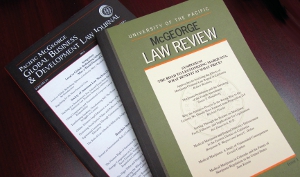Document Type
Article
Publication Date
2006
Abstract
Property rights are-in large part-based on societal expectations. What shapes those expectations? One factor is television, our culture's most important medium of communication. The modern "reality show" may be particularly powerful in affecting the attitudes of viewers because it presents a model of "real life" behavior. This essay is the first legal scholarship to explore the relationship between television and property rights. It focuses on Survivor, the CBS program that chronicles the lives of "castaways" trying to survive in a tropical wilderness, where property is both scarce and vital. Survivor is a "reality show"-and one of the most successful programs in television history. This essay explores four lessons that Survivor and similar programs teach the audience about property: (1) nature exists to provide property for humans; (2) a communal property system is feasible; (3) property is the reward for virtue;and, conversely, ( 4) property is the reward for vice. It concludes by suggesting that Survivor and other programs may push us backward toward Blackstone's absolutist view of property rights.
Publication Title
Rutgers L. Rev.
Volume
59
First Page
97
Recommended Citation
John G. Sprankling, Property and Television, 59 Rutgers L. Rev. 97 (2006).



